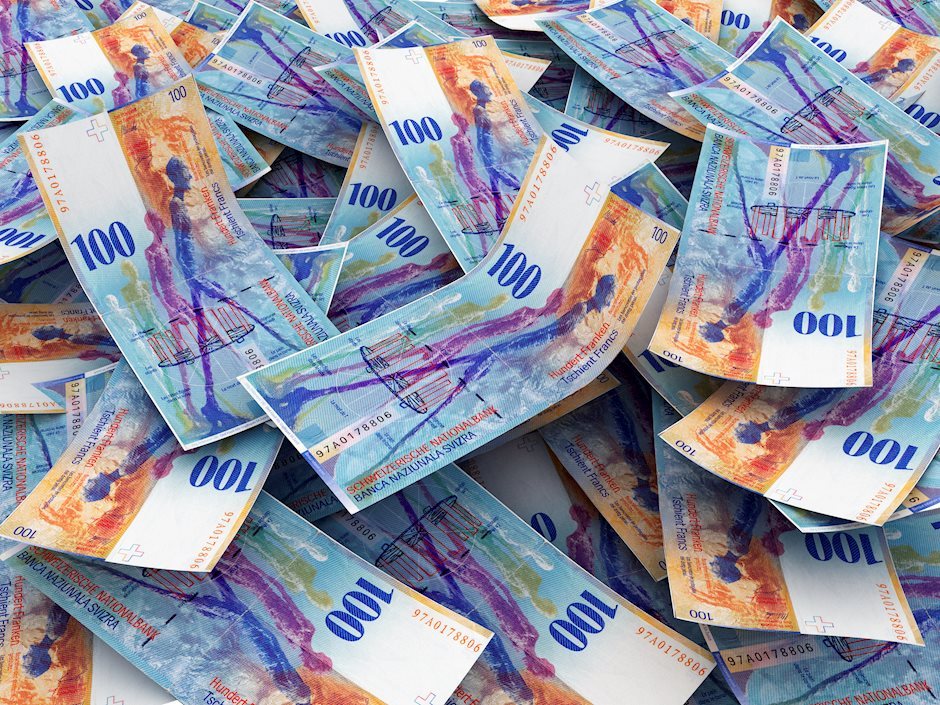USD/CHF maintains position above 0.8650, awaits US economic data
- USD/CHF may appreciate further as US Treasury yields advance.
- The US Dollar receives support amid prevailing uncertainty surrounding the US presidential election.
- The safe-haven CHF may face challenges due to easing concerns over a potential all-out war in the Middle East.

USD/CHF steadies with a bias of extending gains for the second consecutive day amid higher US Dollar (USD) and improved Treasury yields. The pair trades around 0.8670 during the Asian hours on Wednesday. The US Q3 Gross Domestic Product (GDP) figures and October's ADP Employment Change are set to be released later in the North American session.
The US Dollar Index (DXY), which measures the value of the US Dollar against six other major currencies, trades around 104.30 with 2-year and 10-year yields on US Treasury bonds standing at 4.09% and 4.24%, respectively, at the time of writing.
Regarding the US presidential election, a three-day poll conducted by Reuters/Ipsos, which concluded on Sunday and was released on Tuesday, indicated that the race is essentially tied as the November 5 election approaches. Vice President Kamala Harris, the Democratic candidate, has seen her lead over Republican nominee Donald Trump narrow to just one percentage point, with 44% support compared to Trump's 43%.
The demand for the safe-haven Swiss Franc (CHF) may decline due to easing concerns over a potential all-out war in the Middle East. An Axios reporter posted on X that Israeli Prime Minister Benjamin Netanyahu would soon meet with several ministers and military and intelligence leaders to discuss a diplomatic resolution to the war in Lebanon, per Reuters.
Traders are expected to monitor the Swiss Consumer Price Index (CPI) for October and the Real Retail Sales for September, both set to be released on Friday. These data points could provide insights into the economic conditions in Switzerland.
Swiss Franc FAQs
The Swiss Franc (CHF) is Switzerland’s official currency. It is among the top ten most traded currencies globally, reaching volumes that well exceed the size of the Swiss economy. Its value is determined by the broad market sentiment, the country’s economic health or action taken by the Swiss National Bank (SNB), among other factors. Between 2011 and 2015, the Swiss Franc was pegged to the Euro (EUR). The peg was abruptly removed, resulting in a more than 20% increase in the Franc’s value, causing a turmoil in markets. Even though the peg isn’t in force anymore, CHF fortunes tend to be highly correlated with the Euro ones due to the high dependency of the Swiss economy on the neighboring Eurozone.
The Swiss Franc (CHF) is considered a safe-haven asset, or a currency that investors tend to buy in times of market stress. This is due to the perceived status of Switzerland in the world: a stable economy, a strong export sector, big central bank reserves or a longstanding political stance towards neutrality in global conflicts make the country’s currency a good choice for investors fleeing from risks. Turbulent times are likely to strengthen CHF value against other currencies that are seen as more risky to invest in.
The Swiss National Bank (SNB) meets four times a year – once every quarter, less than other major central banks – to decide on monetary policy. The bank aims for an annual inflation rate of less than 2%. When inflation is above target or forecasted to be above target in the foreseeable future, the bank will attempt to tame price growth by raising its policy rate. Higher interest rates are generally positive for the Swiss Franc (CHF) as they lead to higher yields, making the country a more attractive place for investors. On the contrary, lower interest rates tend to weaken CHF.
Macroeconomic data releases in Switzerland are key to assessing the state of the economy and can impact the Swiss Franc’s (CHF) valuation. The Swiss economy is broadly stable, but any sudden change in economic growth, inflation, current account or the central bank’s currency reserves have the potential to trigger moves in CHF. Generally, high economic growth, low unemployment and high confidence are good for CHF. Conversely, if economic data points to weakening momentum, CHF is likely to depreciate.
As a small and open economy, Switzerland is heavily dependent on the health of the neighboring Eurozone economies. The broader European Union is Switzerland’s main economic partner and a key political ally, so macroeconomic and monetary policy stability in the Eurozone is essential for Switzerland and, thus, for the Swiss Franc (CHF). With such dependency, some models suggest that the correlation between the fortunes of the Euro (EUR) and the CHF is more than 90%, or close to perfect.
Author

Akhtar Faruqui
FXStreet
Akhtar Faruqui is a Forex Analyst based in New Delhi, India. With a keen eye for market trends and a passion for dissecting complex financial dynamics, he is dedicated to delivering accurate and insightful Forex news and analysis.

















